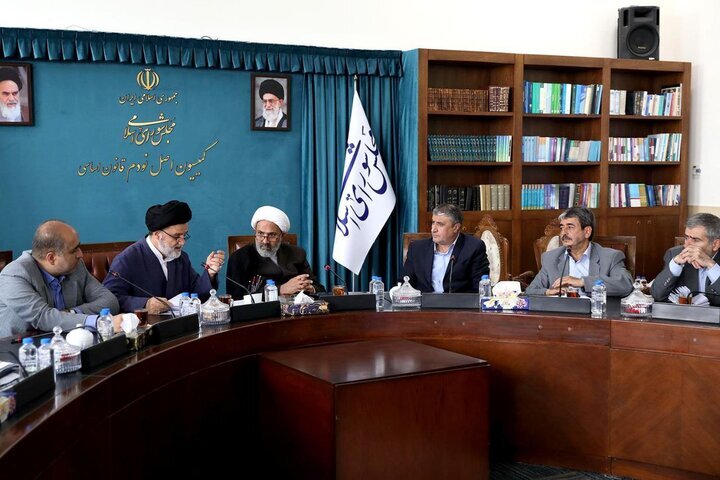INSUBCONTINENT EXCLUSIVE:
TEHRAN – Iranian lawmaker Ali Khezrian has criticized an agreement signed between Iran and the UN nuclear watchdog earlier this year,
describing it as running counter to a law passed by the parliament.Khezrian, who is the spokesman for the Article 90 Committee of the
parliament, said the members of the committee have held a meeting with the head of the Atomic Energy Organization of Iran (AEOI) and his
deputies to review the implementation of the Strategic Action Law, which regulates Iran’s nuclear interactions with the West and the
International Atomic Energy Agency (IAEA).“In this meeting, the head of the Atomic Energy Organization first presented a report on the
various aspects of the agreement and the latest status of the Strategic Action Law,” the lawmaker said, according to Mehr News. He added,
“After listening to the report of the head of the Atomic Energy Organization, it became clear to the members of the committee that the
agreement [with the IAEA] is against the law of strategic action to lift sanctions and the Supreme Leader of the Revolution's emphasis on
non-violation of this law.”He said that according to the nuclear guidelines outlined by the Leader, Iran should not accept commitments
that go beyond the Safeguards agreement
But the agreement with the Agency, Khezrian said, includes commitments far beyond the safeguards. “Unfortunately, according to the
agency's statement, about 10 cameras have been installed in the centrifuge production workshop at the Isfahan site that are beyond the
safeguards,” he said. He also said that two enrichment monitoring devices (EMD) have been installed at the Fordow and Natanz nuclear
plants without authorization from the relevant Iranian authorities
“This is not only in contravention of the Parliament’s law but also beyond JCPOA commitments,” the lawmaker said, referring to the
2015 Iran nuclear deal by its acronym. According to Khezrian, the installation of the EMD devices in Iran was the first of its kind in the
world. Khezrian pointed out that according to the JCPOA, On-Line Enrichment Monitor (OLEM) devices should have been installed, not EMDs
“It should be made clear what are the differences between these two devices,” he continued.

